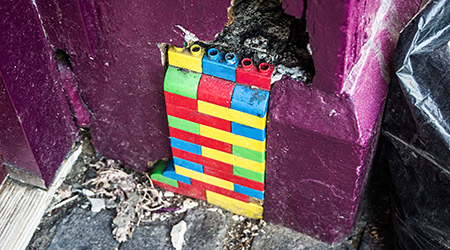How to Build Credit After Bankruptcy

Learning how to build credit after bankruptcy is not as difficult as you may fear. Bankruptcy is not the end of your financial life -- in fact, if you see it as a new beginning, your positive attitude will only bolster your coming success in the financial world.
It may seem unlikely, but anyone can get credit soon after a bankruptcy. It's just a matter of knowing how. Obtaining a secured credit card after bankruptcy is just one of the many ways to improve your post bankruptcy credit. Everyone knows that bankruptcy can deal a serious blow to your credit history and your credit score. Fortunately, the effects of bankruptcy don't have to be lasting. You can quickly learn how to build credit after bankruptcy -- simply follow the guidelines below.
Good news -- after about seven years, your bankruptcy will disappear from your credit report. Don't wait that long to build credit -- well before the bankruptcy drops off your credit report, you can qualify for loans and lines of credit with good rates and terms, almost as if your bankruptcy never happened.
If you're recently bankrupt, there are two things to keep in mind: nothing in the world of credit lasts forever. Depending on the state where you filed bankruptcy, it can legally remain on your credit report for up to 10 years, but the effect bankruptcy has on your credit score can start to fall off as soon as the day your case is closed. The key is to take on responsible credit habits -- paying your bills on time, using a small percentage of your available credit, and simply not applying for too much credit all at once. Secondly, you have to get and use credit to build your credit score. There's no way around it -- even if you've had trouble with credit cards and lines of credit in the past, you're going to need to engage in some credit-based transactions to build your credit. While paying exclusively with cash may be a smart choice for those who have trouble with credit, if you want to rebuild your credit score you can't avoid using credit.
Why not consider using your bankruptcy as a "wake-up call" to change your credit habits, figure out what's wrong with your finances, and fix the problem. If your main credit problem was simple overspending, you'll find a simple solution in creating and sticking to a regular budget. This is how to build credit after bankruptcy -- you're going to have to hunker down and plan your finances out in advance.
Another great piece of advice for those dealing with bankruptcy -- if you filed Chapter 11 because you didn't have enough savings to survive a major financial setback like a job loss, it is time to get serious about setting up an emergency fund. While you may find it difficult to open a savings account post-bankruptcy, applying for a secured credit card after bankruptcy will automatically establish a savings account in your name equal to the credit limit offered by the secured card. This savings account can be your "emergency fund", and even after you've paid off the secured card, the savings account will still exist -- it will even have accrued interest in the time that you were using your card. This is a great way to build post-bankruptcy credit.
Another common reason that bankruptcy occurs -- medical bills. If medical spending led you to bankruptcy, you must get serious about health insurance. Look for a job with insurance coverage or check to see if your state offers coverage you can afford.
If you still have student loans, remember that these aren't normally discharged in a bankruptcy case. However, you can use this debt as a benefit to rebuild your score. Make your student loan payments on time every month, and just like with a credit card, you should pay more than you owe every month. Besides making on time payments, paying down your other existing debt is one of the best ways to improve your credit score after a bankruptcy.
Though it is unlikely in the current credit climate, you may qualify for a high-rate mortgage in as few as six months post-bankruptcy. Truthfully, you're probably better off waiting until you can qualify for an FHA loan, but drastic times call for drastic measures. You can typically get an FHA loan a mere two years after your bankruptcy case has closed, as long as you've followed the above advice, and maintained good credit habits since your bankruptcy was closed. FHA loans have interest rates that are usually only half a percentage point higher than regular mortgage rates.
Don't worry about how to build credit after a bankruptcy -- just get out there and do it. Acquiring a secured credit card after bankruptcy is just the first step towards rebuilding your post-bankruptcy credit. Paying your bills, staying within your spending limits, and acquiring "installment credit" to help your credit score improve are all necessary steps to rebuilding credit. Don't think of your bankruptcy as the end of your life, just the end of your old habits, and the beginning of your new good ones.







